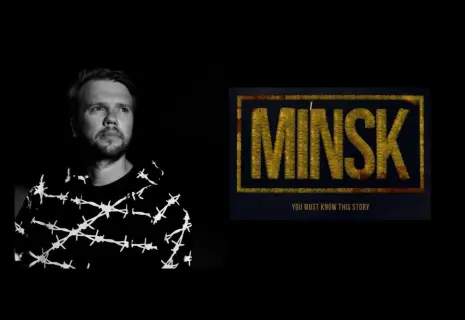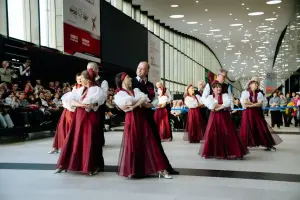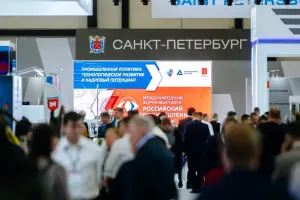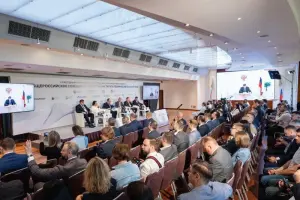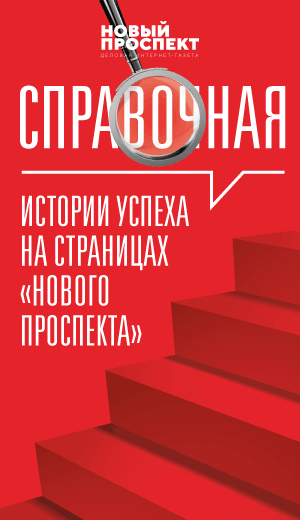“This is a horror movie. Only we don’t have the evil dead here, we have cops.” Boris Guts about the MINSK film

Text by Nikolay Nelyubin
Translation by Vladimir Kolosov
MINSK is the first released feature film describing the events happening in the capital of Belarus after the 2020 presidential elections. It will not be available in Russian cinemas — only in Estonia, where the movie was filmed. In his long interview with Novy Prospekt, Boris Guts, screenwriter and director of the film, which was filmed in one take from beginning to end, describes the meaning of his statement that has become even more pertinent after February 24, 2022.
Boris, the film is not set for distribution in Russia. However, you applied to the Ministry of Culture for permission. What for?
— Whether it sounds funny or not, but they approved the film. They did not have a formal reason to deprive us of a distribution certificate. Then I wrote on Facebook (owned by Meta Platforms Inc. — recognized as an extremist organization in the Russian Federation, its activities are prohibited) that if they were smart people, then they would issue the certificate, but if they were stupid, they would have never do it. In this case, we were ready to make a scandal. Moreover, if they acted as smart people and issued the certificate, they would do everything not to allow any cinema to show the film. It happened exactly that way. We have the certificate that not a single cinema accepts. There was one large cinema network, but after a number of scandals with Artdocfest, with Muratov which were covered in paint, they said, «No, we cancel everything, let’s try it later, in the fall.»
Special operation?
— Yes. We received the certificate on February 22. On February 23, we signed agreements with a bunch of cinemas, but on the morning of February 24 everything changed. Considering the fact that another «grandfather» in a neighboring country supported the entry of troops, the story became completely obvious. Even the most liberal cinemas stopped doing anything. Although now I understand that they issued the certificate simply because they did not watch the film. In late February, everyone was no longer thinking about cinema. It was a total mess. Every day I understand more and more that any system creates sloppiness. This is how systems fall apart — when people themselves are not interested in doing what they are supposed do. According to Karl Marx, it is called the alienation of labor. They have some papers, a disk, there is no time to watch it, and they just sign the paper.
Those who manage to watch the film surely agree with me: you have an amazing main character. How did you find each other?
— It was a kind of magic… When you work on a film, you write the script either for someone or about someone. In this case, I wrote about myself and my wife (Anastasia Gusentsova, co-producer of all the films of Boris Guts. — «NP» note). All those «meowing» in the frame, all those main characters' relationships — it was all about me and Anastasia. I announced a casting for the film, which at that time was not called MINSK, but «The State». In this case, any translation into English was far from what we wanted to say, as you understand…
I am talking to a man from Omsk. There is no need to explain the meaning of the quote «Kill the state in yourself!» Am I right?
— Exactly! «State» in English means something like our «Government.» This is not the meaning we want to use… Therefore, having announced the casting, I quickly found a lead actress — Nastya Shemyakina. Seeing her on Instagram (owned by Meta Platforms Inc. — the company is recognized as an extremist organization in the Russian Federation, activities are prohibited), she fascinated me with her spontaneity. She is also Nastya, like my wife (smiles). They are similar emotionally and energetically. There were no tests or castings. We just met at Starbucks, and five minutes later I understood everything. When we shot the movie, after the sixth take, everyone was lying in the main characters' apartment, everyone was crying, and then we nervously went to smoke on the balcony. I felt that I had to say something to the actress. In the film, the cop actor really grabs the main character, bruises her. Everything was done by mutual agreement of the actors, on a crazy adrenaline. Given that level of aggression, one could go crazy. In addition, I told her that I was not looking for anyone else for that role. For the actress, who went through all that hell of the film in just an hour and a half, with injuries and bruises, it was important to hear from me that since the very beginning I had not looked for anyone else for the role. «I knew right away that it was you.» It happened exactly like that.
You mentioned six takes, but the film was shot non-stop. That means that the camera turns on at the start and turns off at the end of the film?
— Yes. As a result, there was no gluing (the film lasts 1 hour 23 minutes. — «NP» note). However, we shot it six times, two takes a night, three nights altogether. Finally, the third, fifth and sixth takes were taken as the basis. Then they competed with each other to become the final distribution version.
You mean to say that the actors shot the entire film six times?
— Seven. There was another, the very first take, when the actors were without makeup, in ordinary clothes. Everyone understood that I could say, «Stop» and then start again. Nevertheless, I never said «Stop» during this very rehearsal. We did everything for an hour and a half. It was extremely helpful. Everyone understood that we could do it. Although the first two takes were terrible. It’s a typical theatrical story, when after a good test and hugs, when everyone gets excited, the first filming takes are terrible… That time all the actors realized that they were underacting. The third take was good, but during the third night, everything turned out just perfect in terms of both organization and acting.
What is an ideal audience for your film?
— I still don’t think that we have made some kind of a complex social art house — we just made a spectator film. This is a horror movie, a typical American horror film, where in the beginning young people have sex, drinks, and then go somewhere… The only difference is that we do not have the evil dead, instead we have cops. This is a genre movie. Some wait for sharp statements about the revolution, wait for the answers about how to survive. However, cinema should not give answers, it should raise questions. Secondly, I always stand up for the fact that cinema should provoke emotions. As one classic of cinema used to say, cinema does three things: it scares you, it makes you laugh, and it makes you cry.
Our film is designed for that purpose. It should frighten, horrify, knock out tears from those guys who want to love, but cannot do that because of the events in Ukraine that leads everyone to depression… We wanted to put all these feelings into our film. I don’t even know yet what will happen in 2022. At the same time, it was very important for us to make a movie with respect and faith that ordinary people, not revolutionaries, will cease to be the same in an hour and a half of horror. Something will change them forever. Our main character Yulia, played by Nastya Shemyakina, after she meows stupidly at the beginning of the film, starts dreaming of a child, she becomes different in just an hour and a half. She will no longer be the same. A huge number of people in Belarus, including my friends, will no longer be the same. Regardless of whether they were sitting on Akrestsina those days or not.
Many good people in Russia did not understand when smart people warned them, saying that we would be next after Minsk…
— However, it turned out that Minsk-2020 has become a training ground. The special services not only in Belarus have understood how to resist people, humiliate them, intimidate, kill…
Do you mean to say that your film is more for young people, rather than for old ones with their arms round their TV-sets?
— I hope that the young people who don’t think about war or revolution at all will watch the film. Because there is sort of action, there is love and sex, they will wonder what can happen to them if they just go out into the street.
You know that many Russians in Estonia, where you shot you film and where it will be premiered and distributed, after the ban on the rebroadcasting of Russian state TV channels with their insane propaganda, installed satellite dishes and other devices to have access to Kiselev, Solovyov and Simonyan. Artemy Troitsky told us about that earlier. Can you understand them? Our friends say that at the everyday level they regularly say something like «When our soldiers come back, they will have a seat at the table here» (organizers of the Immortal Regiment of the Estonian procession publicly talk about the arrival of the Russian military. — «NP»).
— (Long pause.) Good question, yes … I am trying to understand that. What happens to my friends and family in Russia after they watch that zombie TV is terrible. I cannot blame people for that, and I do not want to judge. I am trying to understand them instead. I know how propaganda works. After all, I also worked for the propaganda television… It is propagated as a kind of imperial consciousness. We have the best ballet, hockey and so on. And this is a soft imperialism. But when it comes to every Russian saying that you are the greatest, because you are part of the empire, this becomes nationalism that exists everywhere in the world. Le Pen in France, Trump in the US, no matter where it happens…
A man in Tallinn watches Solovyov via satellite, because for all the rottenness of his nature, Solovyov is a professional. In 30 seconds, he knows how to make people believe that they are not just guards, but part of a great nation, a great plan, a great destiny. This is exactly how propaganda works, especially when a person receives 15,000 rubles a month.
Plus the inability to be independent…
— When you get a pension of 15,000 rubles or you graduate from a school in Kurgan being less than 20 years old, it is very difficult to be independent. There is nothing you can do: neither leave the town nor decide for yourself. You are part of the system. Any attempt to go against it will deprive you even of these pennies. Now you can even go to jail.
I remember very well when our party leader came to power. I was sitting with my journalist colleague, then the Yukos case began. «It seems they are starting to tighten the screws,» I told my friend. «No, these are not the screws yet; it is just a local showdown. You will feel the screws yourself later on,» he said. Probably, it was 2011 when I already felt it myself. I was a photographer shooting a lot in the streets. I took photos of Ilya Yashin, Boris Nemtsov. I filmed a documentary. Just by good fortune, I did not go to Bolotnaya in May 2012 — I fell ill, so I could not go there. Then Pussy Riot (организация признана экстремистской, ее деятельность в России запрещена) happened. It became clear that anyone could be imprisoned for anything. When the «Bolotnaya case» began, two friends of mine left for the Baltic States. It became obvious that something else was going on. Even after Crimea, there were no such feelings. I only started thinking about personal emigration after Navalny’s demonstrative imprisonment. The absurdity with the courts and the police was evident. Then it became clear that the Motherland is not a safe place to be.
In the film, we have exactly the same cops as in Russia. You walk through Kurgan, Omsk, Chelyabinsk or Moscow, you meet police officers, and you do not feel safe. You understand that they will not bring you home, they will not give you directions. You start to worry. Don’t you have anything with you? Do you have your passport with you? This insecurity is a perversion. We should not be afraid of those who protect us.
Do you have your own personal experience of this?
— Naturally. They did not beat me, but humiliated me. There were attempts to put drugs in my pocket, there were searches down to my underpants. Once I arrived from St. Petersburg after a meeting, and they took me away from Paveletsky railway station. Without introducing themselves, they searched me. Searched right down to my underpants. It was already three or four years ago. Probably, it is not the right time to remember the 90s — I was a punk, there was a grunge band. Then they just regularly arrested us, showed us to friends like monkeys: «Just look at these alternative people. Gee-gee.»
Didn’t they promise to shave you with a lighter? Once they tried to shave me that way.
— My hair did not grow very well (laughs). As for the long hair — yes, there were constant attacks.
«Do you want to declare something?» — «There is no way to England for you!» Remember Guy Ritchie in Snatch?
— I am not going to emigrate. We are currently filming in Turkey. I move back and forth. Now Estonia, then Turkey again, then I will have a look at Russia, then Turkey again, then negotiations in Germany. I am a traveler — and that’s what I say when they ask me where I am from — Russia or Ukraine. They ask this question in Armenia, Georgia, Tallinn. I heard this kind of answer at the airport once. As John Lennon sang, «Imagine there’s no countries.» I follow this way of life. No borders, no nations. I am a person of cinema and I shoot wherever I want. It does not matter to me what Turks think about Russians, what Estonians think about Russians, or about Putin. I just want to work. I have excluded myself from the Russian film industry long ago. It has been rotten for quite some time. I do not want to be a part of it. However, my parents are in Russia, so I will go back to visit them. It looks like I will not be working there.
Now some actors attack other actors, scolding the traitors. Their names are disgusting. Will this sort of narrow-mindedness increase, you think?
— There is a mental civil war going on. There is not an actual one yet, but the psychological war exists. Enemies of the people, traitors — they are very convenient for the state. «Divide and rule» is a slogan for all times. Many narrow-minded people really want to play according to the rules that suit them. They become what they think they are. It is convenient to call Yulia Aug, Semyon Treskunov or Yana Troyanova traitors. It is convenient to call Maxim Galkin gay as well. Aggression and violence have no boundaries. As for our film MINSK. They call names, rat out people, and betray them, just because their dad does it. Any dictatorship is like a family where there is domestic violence. Where the father beats the mother. I dealt with this topic, photographing victims of domestic violence. I remember families where a respectable well-to-do man comes home and raises his hand to his wife, to his daughter, but he will not raise his hand to his son! Thus, he shows him that it is OK to beat these stupid «women».
Many sons of that kind were born in Belarus. If the dad said that «you are my support», that they can go, kill and rape, then you are allowed to do that. The father said so, the father is great!
As the late Sergey Dorenko said, «Steal now, don’t be a sucker.»
— Exactly so! If Mr. Lavrov says that Hitler was partly a Jew, and then corrects himself by saying, «they misunderstood you because you crucified Christ»… That is, he spat at millions of people around the world, touching on the Holocaust topic while mixing Christ into it. We talk about the second or third person in a huge state like Russia. Why cannot everyone else behave like cattle? And they will behave this way.
Coming back to fathers and children in the family. Starting from the first frame of Yulia Aug in your film, there is a sense of discomfort… And after a few minutes, a ringing horror comes. Let us try not to spoil it, but how was this character born?
— In the original script, she was not present at all. When we were forbidden to shoot the film in Tula, I froze the project. Then I finished this story, so this scene appeared, with such a witch, a spider, when nothing seems to happen, but then a nightmare comes. It was born from the huge number of stories were women really saved people. Actually, some of them saved my girlfriend that way. However, there were others. Before the police horror began, it was very important to tell the story of St. Bartholomew, who was skinned alive. This is a real story: a sadistic cop sincerely believes in God, crosses himself, and paints eggs. I personally know such a man.
Well, after all, there is absolutions of sins, if you stand in the crowd for several hours, eat what is needed, receive communion…
— Yes, he still sends me «Christ is Risen!» on WhatsApp! I am a big fan of Stephen King, who spends his whole life trying to figure out how evil appears. His answer is that the evil simply exists and seeps through.
Will you be upset if MINSK goes online?
— We will put it online anyway. Now we have been kicked out of Cannes, even though we have removed «Russia» from all catalogs, and left «USA-Estonia».
Do you resent Cannes?
— No, I understand what the current situation is. Russian producers are a toxic topic. Propagandists of all kinds will crucify me for these words, but nothing terrible will happen for the world culture if Russian films were not shown in Cannes. MINSK is not art, it is a statement.
You said that you made your film for people who avoid politics. It seems to me that such a person will watch your film and say: «Don't fucking walk the streets.»
— Nine out of ten people would say that, but one will start thinking that «it is impossible to live like this.» Even if one person in a hundred thinks so, my mission is accomplished.
In your film, people run away from the police station. Is this the author’s conscious correction of reality? Embedding hope?
— It is more like chaos. Some people from Belarus told me that only football fans could fight back. The most reckless are the fans of the Minsk-based «MTZ-Ripo», a tractor plant. Their slogan is heard in the film, although, as far as I can understand, the team itself no longer exists. By the way, in Russia, football fans were dealt with very quickly — they turned into «Nashists» and are paid salaries.
They say it was chaos in the 90s. Recently, the first president of Belarus, Stanislav Shushkevich, who signed the Belovezhskaya Accords in 1991, died. Do you remember how you personally understood those events in your childhood?
— I was 11 years old. My father was engaged in democratic elections. I remember the Swan Lake very well and the shaking hands of Yanaev as well. I remember my parents who were afraid that a civil war would begin. On the one hand, there was a feeling of horror, and on the other, that something would change. Anyway, after that things got a little more complicated.
What did both Russians and Belarusians become for Ukrainians after the special operation started?
— Unfortunately, for Ukrainians both Belarusians and Russians are all enemies, regardless of their attitude. As a Russian, I cannot blame them for this. We will be trying to put things right for decades to come. Now it is important to simply prove by actions that you are not a bastard. I can only make films. Now I am shooting a film about emigrants, refugees. About love that is impossible because one crazy person decided to send troops to another country.
Do you have an inner feeling that this will last for a long time?
— Yes, it will take a long time. It is beneficial for those who do it. Nobody canceled the money. People are being killed, but the gas is coming. You cannot kill people, just cannot. I always remember the words of my fellow citizen Yegor Letov that said that the word «People» is written with a capital letter. It is stupid to do that for the sake of money and political ambitions, but people forget about it. There will be many more dead people, children…
While Letov was alive, many called him «red-brown», but everyone ran to love him when he left. Today, listening to his album «One Hundred Years of Solitude» it is the time to say that he was a prophet.
— For all his ambiguous political views in the 90s, he is a genius poet. And a poet in Russia is a person who keenly feels the future. «One Hundred Years of Solitude» is probably his best album. Letov said that his album «Solstice» was like a battle sheet (an album of the mid-90s, when Letov was close to the now banned party of Eduard Limonov. The album was called «Lunar Coup» in reissues. — «NP»). «I see how my Motherland rises from her knees» and all other songs from this and next albums of his «Civil Defense» are more than just battle sheets. He was sincere, and this sincerity is now important for everyone who can think. It is important to understand that freedom, love, lack of fear, faith in oneself and in beloved ones or in friends is much more valuable than what we are told by TV.
While we were talking, news has come in about the Russian woman Sofya Sapega, after everything that was done to her and how Lukashenko’s propaganda used her, that she has been sentenced to six years in prison. Not 12 as seemed likely, since she cooperated with the investigators and got half as much. What do you think of it?
— In Russia, they often say: «We never desert our people!» The truth is that for several years we have seen how Russian citizens disappear, dissolve in Belarus. What happened to Sophia is at least a violation of all judicial and legal norms. Why do the Belarusian special services arrest, investigate and judge a Russian citizen? Even if all possible offenses took place, this could be done in the Russian Federation. However, the state of Russia simply throws a young girl into the clutches of a foreign state and keeps silent, forgets about her. Do we desert our people? The Sapega case shows that not all Russians are considered «our own people» by the Russian state. No one feels safe to say that tomorrow he will not find himself in a similar situation.



